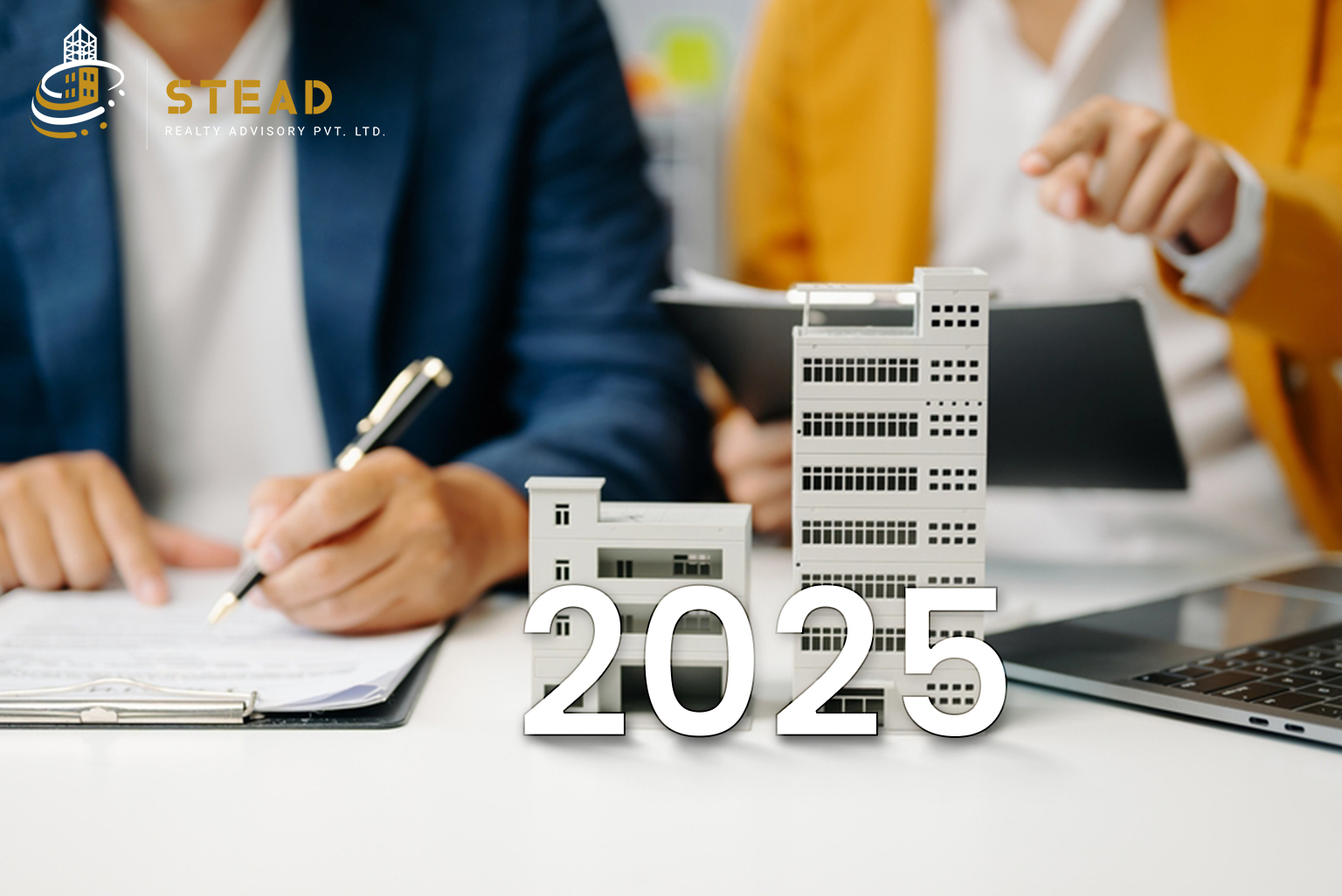Latest Real Estate Trends in 2025 in India
The Indian real estate market is undergoing a dynamic transformation, influenced by economic shifts, technological advancements, and evolving consumer preferences. If you’re an investor, homebuyer, or industry professional, understanding the current trends in the real estate market in India can help you make informed decisions. With 2025 bringing fresh opportunities and challenges, let’s explore what lies ahead.
1. The Rise of Smart and Sustainable Homes
One of the most significant real estate trends in India is the growing demand for smart and sustainable housing. Homebuyers in 2025 are prioritizing eco-friendly homes equipped with smart technologies. From solar panels and rainwater harvesting systems to AI-powered home automation, sustainability is no longer a luxury but a necessity.
Why is this trend important?
- Government initiatives like ‘Green Rating for Integrated Habitat Assessment’ (GRIHA) are encouraging sustainable housing.
- Homebuyers are more environmentally conscious, leading to a surge in green real estate projects.
- Developers are integrating smart security systems, energy-efficient appliances, and IoT-enabled solutions to enhance comfort and efficiency.
- The focus on Net Zero Energy buildings is gaining traction, ensuring long-term cost savings and a reduced carbon footprint.
2. Co-Living and Shared Spaces Gain Popularity
The shift in lifestyle preferences, especially among millennials and Gen Z, has fueled the demand for co-living spaces. With rental prices soaring, shared housing solutions are becoming more attractive.
Key drivers of this trend:
- Remote work and hybrid models have increased demand for flexible living spaces.
- Co-living offers affordability, community engagement, and premium amenities at lower costs.
- Investors and developers are keen on building co-living properties in metro cities.
- The trend is extending beyond metros, with Tier 2 cities witnessing a surge in demand for well-managed rental accommodations.
Mumbai, in particular, is seeing a rise in shared spaces, aligning with the Mumbai real estate market forecast 2025, which predicts an uptick in demand for rental accommodations.
3. Affordable Housing Remains a Priority
Despite the rise of luxury and smart homes, affordable housing continues to be a crucial segment. The government’s ‘Housing for All’ initiative is driving growth in this sector, making homeownership more accessible to middle-income groups.
What’s shaping this trend?
- Developers are focusing on budget-friendly housing projects in Tier 2 and Tier 3 cities.
- Government subsidies and lower interest rates on home loans are making property purchases easier.
- Rising demand in areas with improved infrastructure and connectivity is driving affordable housing sales.
- Affordable housing projects are becoming more organized with township planning, ensuring amenities like schools, healthcare, and recreation centers.
4. The Boom of Real Estate in Tier 2 and Tier 3 Cities
While metro cities remain hotspots, Tier 2 and Tier 3 cities are now major growth hubs. Locations like Ahmedabad, Indore, Lucknow, and Coimbatore are attracting significant real estate investments.
Why are investors eyeing smaller cities?
- Improved infrastructure and transportation are making these cities more accessible.
- Lower property prices and higher appreciation potential compared to metros.
- Growth in employment opportunities and urbanization is boosting real estate demand.
- Rapid urban migration is driving the need for quality housing and commercial developments.
According to the Indian real estate market forecast 2025, smaller cities will see increased commercial and residential real estate developments.
5. The Commercial Real Estate Revival
Post-pandemic, the commercial real estate sector is bouncing back stronger. With businesses expanding, office space demand is growing, particularly in tech-driven hubs like Bengaluru, Hyderabad, and Pune.
What’s driving commercial real estate in 2025?
- Hybrid work culture is creating demand for flexible office spaces.
- Warehousing and logistics hubs are growing due to e-commerce expansion.
- The rise of data centers, driven by digitalization, is attracting global investments.
- Co-working spaces are thriving, offering cost-effective alternatives for startups and SMEs.
The Mumbai real estate market forecast 2025 also suggests that commercial spaces in prime locations will see steady appreciation due to increased business activity.
6. The Impact of Government Policies
Government regulations and policies continue to play a crucial role in shaping real estate trends in India.
Key policy changes influencing the market in 2025:
- RERA (Real Estate Regulation and Development Act): Ensuring transparency and protecting homebuyers’ rights.
- GST and Stamp Duty Revisions: Potential tax benefits and lower registration costs could boost sales.
- Foreign Direct Investment (FDI) in Real Estate: Encouraging more global players to invest in Indian properties.
- Infrastructure Boosts: Increased investment in highways, metro projects, and smart cities will enhance connectivity and boost property demand.
7. Luxury Real Estate on the Rise
High-net-worth individuals (HNWIs) are fueling the luxury housing segment. Demand for ultra-luxurious residences, penthouses, and gated communities is expected to surge in cities like Mumbai, Delhi, and Bengaluru.
Why is luxury real estate booming?
- A rise in disposable income among affluent buyers.
- NRIs are investing in premium properties for high returns.
- The trend of branded residences with top-notch amenities is gaining traction.
- Exclusive concierge services, wellness-focused homes, and designer interiors are redefining luxury living.
8. Tech-Driven Property Transactions
The integration of technology in real estate transactions is revolutionizing the way people buy, sell, and invest in properties.
Tech advancements shaping the market:
- Virtual property tours and AI-powered property matchmaking.
- Blockchain-based real estate transactions for transparency.
- PropTech startups innovating with digital mortgage solutions.
- Big data analytics helping investors make data-driven decisions.
Final Thoughts: What’s Next for Real Estate in 2025?
The current trends in the real estate market in India indicate a transformative period with diverse opportunities. Whether you’re a homebuyer, investor, or industry professional, staying updated on these trends will help you navigate the market efficiently.
Key Takeaways:
- Sustainability and smart homes are shaping the future.
- Co-living and shared spaces are gaining momentum.
- Tier 2 and Tier 3 cities are emerging as investment hotspots.
- Government policies continue to play a crucial role.
- Tech-driven real estate transactions are simplifying buying and selling.
- Luxury housing and commercial real estate are witnessing strong growth.
The Indian real estate market forecast 2025 is promising, with growth across multiple segments. Whether you’re eyeing a home in a metro or an investment in a growing city, now is the time to explore the evolving landscape of Indian real estate.







